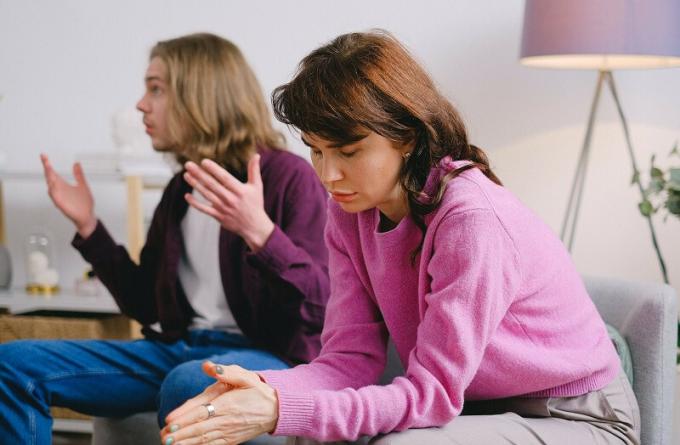Do you usually avoid arguments as a couple?
As is known, people in a relationship, especially in times of crisis, act like "chasers"They try to solve the conflict at the moment. They want to talk, they insist and demand.
In this article we take a closer look at those others who, in the same conflictive situations, tend to react avoiding: they don't talk much (or at all), they don't want to continue the discussion and prefer to withdraw, isolate themselves and "let the storm". The reactions of each of them trigger the reactions in the other, thus creating a negative cycle in the way of relating.
- Related article: "The 28 types of communication and their characteristics"
The importance of attachment styles
We are all human and we have different ways of expressing and reacting to life's problems. The same happens with our partner, who is the most significant person with whom we decide to share our life. All these ways of reacting to emotional situations are called attachment styles. and they are modeled from the first life experiences, not only with our parents, but later with our siblings, other close relatives, friends, co-workers, etc.
These attachment styles they continue to influence each other, in how we understand, feel and behave in relationships in adulthood.
People who tend to withdraw emotionally or even physically to avoid the bad moment of a conflict with their partner, are people who seem emotionally unavailable: They avoid closeness or intimacy with the people who matter most to them, especially in times of stress. They can be people of any gender, although traditionally it used to be described as a behavior associated with a masculine role: logical, practical and rational.

- You may be interested: "Do you argue a lot with your partner?"
Avoidance dynamics in couple relationships
People who avoid normally numb or repress emotions; this is especially important in times of conflict, because they may feel that they cannot do anything to 'solve' the situation.
They usually avoid fights and arguments because they can feel so overwhelming that they prefer to physically withdraw from the room or emotionally 'in'. This it is the way they have learned to protect themselves from what hurts them; throughout their experiences in life they have developed a way of coping with situations uncomfortable emotional feelings, that is, keeping distance from what can hurt them, be overwhelming or threatening.
Thus, avoidant people with their partner have a very painful internal struggle between moving closer and moving away emotionally because they feel inadequate, sad, rejected. They think that they are not worthy of love because they are not enough for their partner and at any moment they are going to abandon them.
This "not feeling worthy" makes them feel even more insecure and inadequate in their relationships, making it safer for them to avoid any situation or conflict that poses an emotional risk or exposes their vulnerability.
In their way of acting, what is seen on the outside is that they normally minimize, seek a positive perspective, remain silent or withdraw into themselves. without finding words that express all that world they have inside.
There are avoidant people who can also "explode", but with the difference that they do it to protect the deep need to have their own space and defuse the situation (whereas persecuting people usually do so in order to continue talking and resolve the conflict at that time). moment).
- Related article: "How does couple therapy work with communication problems?"
The importance of dealing with communication problems in the couple
The vast majority of people protest against the disconnection with our partner. This protest can be more external (in the form of yelling) or more internal (silence or leave the room). For example, when a conflict appears in the couple A-B, A's way of acting activates a personal interpretation and emotions within B who, in turn, reacts to protect what he feels.
This reaction of B also activates a personal interpretation and emotions in A, who responds again. This negative cycle that is repeated over and over again in different situations is responsible for the deterioration of the relationship.
It should be noted that within the world of TFE, they are not found guilty. Both the people who are called 'avoiders' and the so-called 'persecutors' what they want is to reconnect with the person they have chosen to live their lives, but they also need to protect themselves, take care of what they feel for inside. It is always based on the assumption that each one does it in the best way she knows how.
Emotions are the messengers of love, actions, its shield, thoughts, the sword it interprets.



